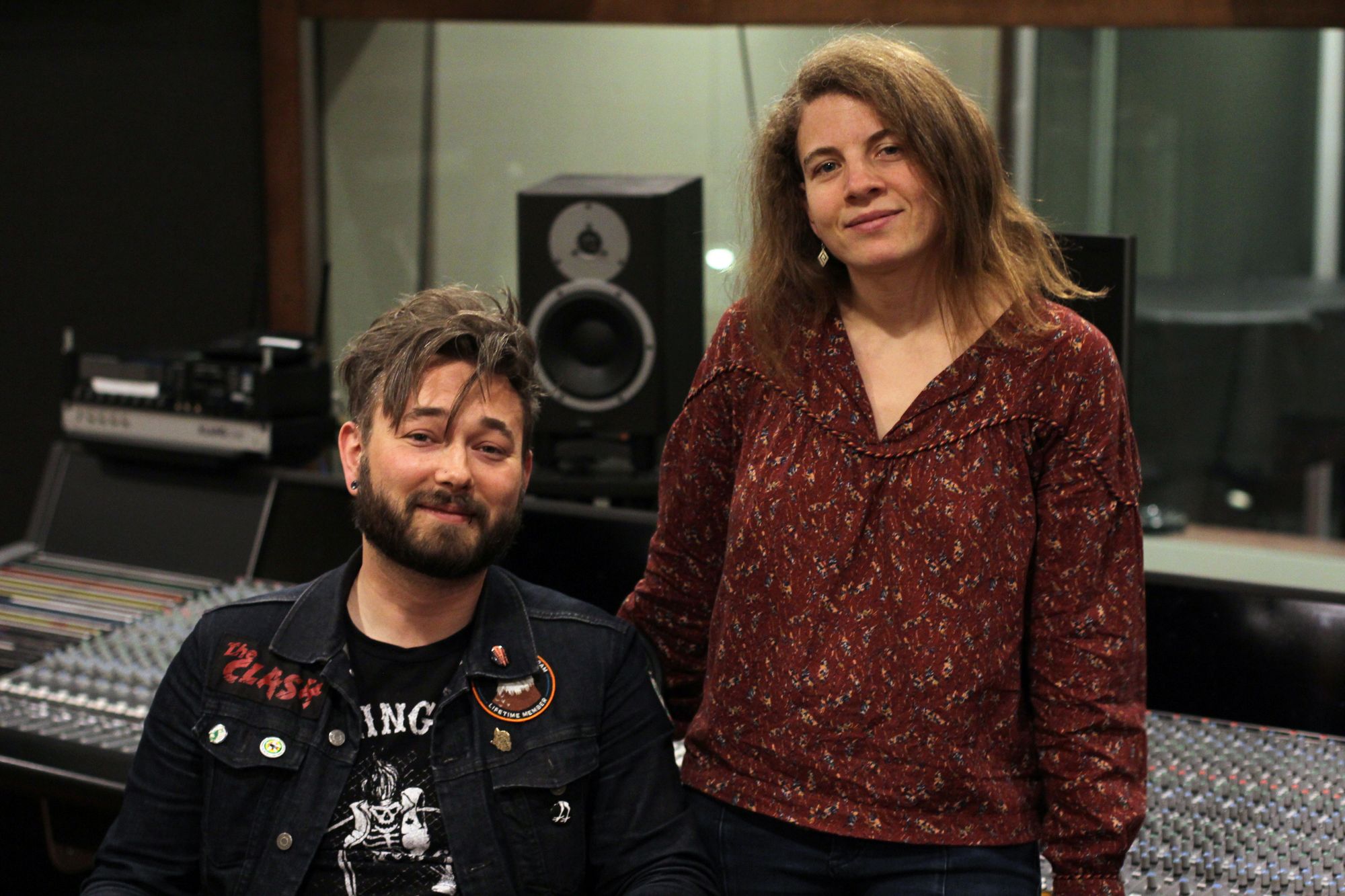As an accomplished musician, Ryland Chambers-Moranz is comfortable on the stage and in the recording studio. As a Digital Audio Arts (DAA) student and researcher in the University of Lethbridge’s Faculty of Fine Arts, he’s proving just as adept at analyzing music in its analog and digital forms. For his work, he’s been awarded both the 2019 Joyce & Ron Sakamoto Research Prize in DAA and the Office of Research and Innovation Services’ Chinook Summer Research Award.
Chambers-Moranz has been studying and researching alongside Dr. Amandine Pras, looking at the practices of the 21st century recording studio, analyzing the differences and preferences of analog versus digital technologies.

“The focus of this research will be to expand an experiment on the topic of mixing practices and perception,” explains Chambers-Moranz. “In particular, whether or not there is evidence of any perceptual differences between analog and digital summing of the same mix, and if so, what are they, and is there a correlation between preference and genre?”
Audio production practitioners continue to debate the superiority of analog versus digital technologies, often influenced by preferred musical genre, cultural background, personal taste, age and nostalgia. This study will serve to develop further understanding of these differences, provide insight into the advancements of digital audio technology and show to what extent analog technology can remain relevant in an increasingly digital world.
“The project will also aid in the distinction between preferred musical genre and production approach,” continues Chambers-Moranz. “If a correlation is found between musical style and production method, it will allow producers and engineers to choose the best mixing format.”
The grant funding provides the opportunity to expand the reach of the study beyond the U of L campus in both mixing capability and in the capacity to draw from a larger sample population. The initial study was completed in the University’s Studio 1 using the SSL Duality to create mixes, and trained listening participants were drawn from the student body.
“The new funding provides access to vintage analog gear from the Banff Centre and the National Music Centre in Calgary,” says Chambers-Moranz. “I'll also be able to reach a larger demographic of mixing engineers worldwide through my own contacts and through those of my colleagues.”
Chambers-Moranz is a solo musician, a supporting guitar and banjo player for Leeroy Stagger and the former front-man for the band Sophomore Jakes. He is currently on the road supporting Stagger at 17 shows across British Columbia, Alberta and Saskatchewan.
Pras will work closely with Chambers-Moranz as a supervisor and colleague throughout the research project.
“I will fully supervise the replication process, as it takes two people and involves many technical and methodological challenges,” says Pras, who will also connect him to industry experts, head engineers and studio technicians in Western Canada and beyond.
The Chinook Summer Research Award will support Chambers-Moranz’s work until the end of August, and the Joyce & Ron Sakamoto Prize for Research & Development in DAA will continue the project until its completion in April 2020.